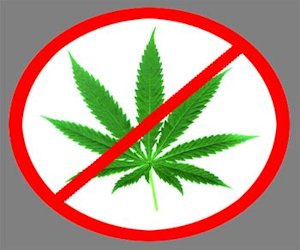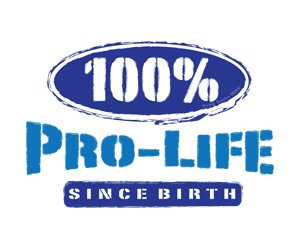5 Reasons Rand Paul is Not a Libertarian
 | | He prefers the term "constitutional conservative" |
With his non-interventionist foreign policy talk, strong support for massive cuts to the federal budget (including defense), vocal opposition of the USA Patriot Act, the NDAA, and the TSA, standing ovations at Berkeley when discussing clamping down on NSA surveillance, frequent reminders that the states have allowed the federal government to take far too much responsibility from them, etc., it's inevitable that Kentucky Senator Rand Paul would be branded the libertarian voice of the Republican party. While I am a supporter of Paul for many of these policies and more, a part of me cringes when he is presented as a case study in libertarianism. Indeed, Paul himself has rejected the label.
One of the things that makes the Libertarian Party so appealing is the fact that it is still small enough to allow for several different viewpoints on a wide range of issues. However, it's safe to say that there are a few things that unite it, including many of Rand Paul's policies above. If Paul manages to overcome the likes of Chris Christie and Ted Cruz to become the Republican nominee for president in 2016--a proposition that seems dubious at best--libertarians who are willing to compromise a bit in order to further a true small government agenda might be wise to consider voting for him, even though he doesn't have an "L" by his name. But make no mistakes: he is not a Libertarian. Here are a few reasons why:
He Won't Talk about the Age of the Earth
 | | This is the intellectual height of the young Earth argument |
When asked directly how old he believed the Earth was, Rand Paul stated, "I'm just going to have to pass." While those at Huffington Post, Mother Jones, and elsewhere are all too eager to imply that this makes Paul a closet creationist, the truth is probably far less dramatic (though no less disappointing): he doesn't want to completely alienate the religious right.
Sure, his personal religious beliefs have little to no bearing on the policy positions he takes, but if I am to have any trust in a political leader, the age of the Earth question is a fair litmus test for scientific literacy. Even if you believe that the Earth is only 6,000 years old, there are ways to answer that question that satisfy science (for example, "My religious beliefs tell me that the Earth is only 6,000 years old, but multiple lines of scientific evidence all point to a much older Earth"), and if you don't believe the Earth is 6,000 years old, you can still pander to those who believe otherwise by leaving room in your answer for differing religious convictions. Regardless of that, though, a strict Libertarian wouldn't have any interest in pandering to the religious right; only a Republican does that.
He's a Border Hawk
 | | Bring the toops back home, so they can stop those damned Mexicans! |
The immigration issue in America has been unfairly dichotomized between the extremes. Having said that, I think it's fair to point out that "border security first" is a typically Republican obsession, whereas Democrats and Libertarians tend to focus more on reducing barriers to legal immigration and creating paths for citizenship for immigrants who come here illegally. I can't find a single card-carrying Libertarian who thinks people born on American soil whose parents were here illegally shouldn't be citizens.
And yet, there's Rand Paul, who thinks the Fourteenth Amendment's "all persons born or naturalized in the United States" is too vague and should be clarified by a constitutional amendment that denies citizenship to children of illegal immigrants. (Granted, the fact that Paul supports the 14th Amendment at all makes him a far sight better than his more radical father.) While he does go much softer on the border security question these days than most of his fellow Republican senators, he did include better fences and more helicopters along the border as part of his winning 2010 Senate campaign.
He Supports a Federal Marriage Amendment
 | | A huge problem, apparently |
Generally speaking, Libertarians don't think the federal government has any business defining marriage, whereas Democrats and Republicans tend to only argue about how specifically or broadly it should be defined. There are plenty of tricky logistical problems in separating the cultural institution of marriage from the State--taxation, medical visitation rights, automatic death benefits, etc.--but for Libertarians, these logistical obstacles are worth overcoming in order to keep the government from dictating cultural norms and interfering with the voluntary contracts between consenting adults. As the 2012 Libertarian Party platform puts it, "government does not have the authority to define, license or restrict personal relationships."
Rand Paul, on the other hand, has been less coherent on the subject. Granted, he has offered lip service to the notion that marriage should be up to the states and that the Supreme Court was right to strike down parts of the Defense of Marriage Act, but when asked if he would support "enforcing the...law banning homosexuals in the military" and a "Federal Marriage Amendment to prevent same sex marriage" he answered in the affirmative. He has not been shy in talking about his opposition to same sex marriage, and though one can oppose the cultural institution while simultaneously working to remove its definition from the law, it is troubling how seemingly hypocritical he is when he talks about keeping the feds out of the bedroom.
He Opposes Legalizing Marijuana
 | | If we legalize it, nobody will ever be sober again! |
For the last year or so, Paul has been pushing the idea of reducing "mandatory minimums" for nonviolent crimes, most notably drug charges. He argues that, under modern federal drug laws, both the current president and the last one--among others--could easily have had their lives ruined long before getting the chance to take public office, because they made a mistake involving drugs in their youth. Reducing mandatory minimums, he argues, would not only reduce the costly burden on our bloated prison system, but it could also promote harm reduction policies that are more geared towards helping drug abusers as opposed to simply punishing them.
However, he is crystal clear that he has no interest in "legalizing" any drug, including marijuana. He feels that legalization would "send the wrong message," that it would encourage the use of the drug, and he feels it is right for drugs like marijuana to be strictly prohibited by federal law. This is diametrically opposed to the Libertarian stance on drug legalization. While Libertarians occasionally bicker about whether or not hard drugs like cocaine or heroin should be decriminalized, they are pretty united in the belief that prohibition of a substance is typically counter-productive. "Criminal laws should be limited to violation of the rights of others through force or fraud, or deliberate actions that place others involuntarily at significant risk of harm," reads the party platform, "Individuals retain the right to voluntarily assume risk of harm to themselves." There really isn't any wiggle room in there for keeping strict drug laws on the books.
He is Ardently Pro-Life
 | | So, before you were born, you didn't have an opinion, because you weren't a person yet? |
For the above issues, Rand Paul may not be a strict Libertarian, but he certainly leans more in that direction than your typical Republican. However, when it comes to abortion, he is as staunch a social conservative as anyone. He introduced the Life at Conception Act in 2013, which would legally define life as something that begins at the moment of conception, and has cosponsored or enthusiastically supported several similar laws. He opposes abortion in all cases, even when rape or incest are involved, and he has received a rare perfect score from the National Right to Life Committee.
This isn't just mildly against a libertarian grain, it's straight-up anti-Libertarian. Again, Libertarians may bicker about specifics like parental notification and the legality of late-term abortions and such, but it's virtually impossible to rectify a libertarian worldview with the belief that the federal government should strictly prohibit something that has no clear-cut ethical concern. You can oppose it on a personal level--just as you can personally disapprove of marijuana--but since neither science nor theology can agree on the "personhood" of an unborn child, you can't argue that the government should outlaw all abortion while simultaneously arguing that liberty--the freedom of personal choice and individual belief--should be the default position for all free people.
Don't get me wrong, please. There are plenty of things about Rand Paul that a registered Libertarian like myself can like. Indeed, he is far less kooky than Ron Paul, his father, and while I can't imagine ever voting to put Paul the elder in the White House, I can definitely see myself voting for Rand. People on both the left and right have started demonizing Rand Paul, which is a clear sign that they see him as a threat. Therefore, I don't want to give you the impression that I am anything but pleased as punch that the Republican Party has somebody like Rand Paul pushing more libertarian-leaning ideas into the mainstream of political discourse. At the same time, though, I don't want all libertarian-minded folks--especially myself--painted with the same brush that is used to paint him.
-e. magill 3/21/2014
|
|